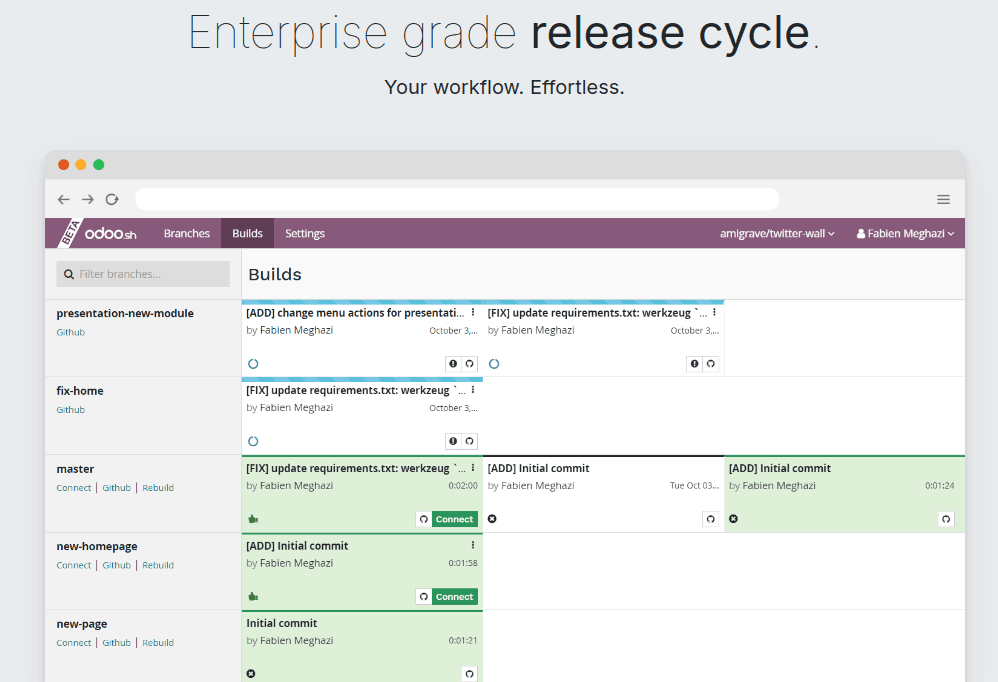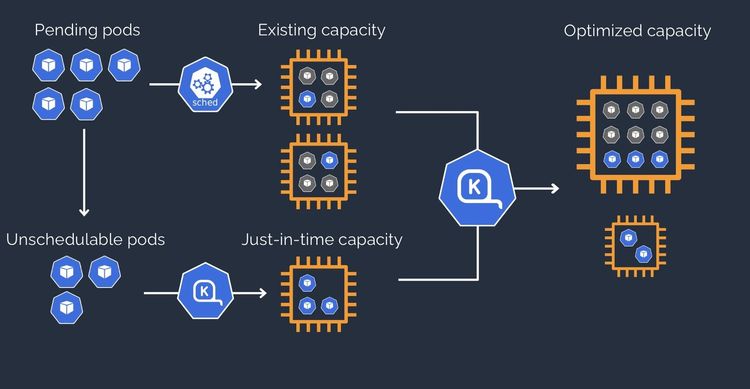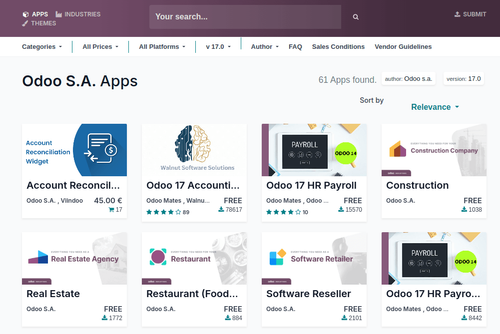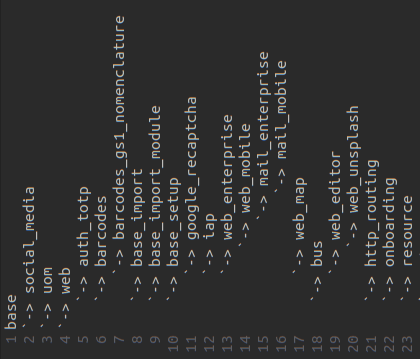Choosing the optimal hosting type for your server depends on various factors, including your server load, budget, goals, and desired features. In this article, we will guide you through the decision-making process to help you make an informed choice.
1 - Odoo.sh Platform as a Service (PaaS)
Odoo.sh is a Platform as a Service (PaaS) because it provides a comprehensive environment for developing, testing, deploying, and managing Odoo applications. The platform includes CI/CD tools that automate testing and deployment processes. This ensures that new features and updates are tested and deployed efficiently and reliably.
Odoo.sh is competitively priced compared to other hosting providers and offers a quick and efficient way to deploy your server. It sets up the correct project environment, allowing your implementation to benefit from various staging or training servers. This is crucial not only for customizations but also for testing different configurations without risking production data. Additionally, you can restore these servers with a fresh, neutralized copy from the production environment, ensuring safe and effective testing.

Advantages
- Fast setup and deployment: Quickly deploy your Odoo environment.
- Integrated environment: Comprehensive tools and services in one platform.
- Continuous Integration / Continuous Deployment (CI/CD) out of the box: Streamlined testing and deployment processes.
- Great value for money for smaller deployments (< 50 users): Cost-effective for small to medium-sized businesses.
- Supported by Odoo Inc / Odoo SA: Access to official support and resources.
Disadvantages
- No access to reverse proxy: Limited control over network configurations.
- Some third-party libraries might not be possible to install: Restrictions on custom integrations.
- Restricted access to the database server: Limited database customization.
- Can be expensive for larger deployments: Costs can escalate with larger user bases.
- Not suitable for some industries like aviation, healthcare, or military: May not meet specific regulatory or security requirements.
- Unsuitable for Alokai Alokai Headless system requires being on the same local network as Odoo for lower latency.
2 - Self-Hosted Deployment
You can self-host your Odoo server at any data center that provides reliable support and quality of service. We have several clients who opt for self-hosting, and we ensure their servers are set up and maintained following the best practices. Alternatively, you can host Odoo on-premises. Just remember that the ERP system is the heart and soul of your company, so having a robust disaster recovery plan is essential. Regular exercises should be conducted to ensure you can restore your server within an acceptable time frame.
Self-hosting offers the most flexibility. By choosing a top hosting provider like AWS, Google Cloud, or Azure, you gain access to a wide array of systems that can enhance your Odoo deployment, such as load balancers, caching systems, storage solutions, and message brokers. For a reliable starting point, we recommend using at least 4 CPU cores, 16GB of RAM, and a 60GB SSD/NVMe. Install an Ubuntu LTS version and then deploy Odoo from the source code to set up your server.
Advantages
- Full control over infrastructure: Customize server settings and configurations.
- Enhanced security: Implement your own security measures.
- Customization and flexibility: Modify the source code and install custom modules.
- Data privacy and compliance: Ensure data is stored on your own servers.
- Cost control: Potential long-term savings without recurring subscription fees.
- Performance optimization: Tailor resources to match specific demands.
- No vendor lock-in: Freedom to switch providers or environments.
- Custom backup and recovery solutions: Tailored disaster recovery plans.
- Network configuration: Customize network setup for optimal performance.
- Scalability: Expand resources as your business grows.
Disadvantages
- Requires technical expertise: Need for skilled personnel to manage and maintain the server.
- Higher initial setup costs: Investment in hardware and software.
- Ongoing maintenance: Regular updates and security patches.
- Potential downtime: Risk of outages if not properly managed.
- Complexity: Managing a self-hosted environment can be complex and time-consuming.
3 - Odoo Online (Software as a Service - SaaS)
Odoo Online is a Software as a Service (SaaS) offering that provides a hassle-free way to use Odoo ERP. It is hosted and managed by Odoo, allowing businesses to focus on their operations without worrying about server maintenance and infrastructure.
Advantages
- No maintenance required: Odoo handles all updates, backups, and security.
- Quick deployment: Start using Odoo almost immediately.
- Scalability: Easily scale up as your business grows.
- Integrated support: Access to Odoo's official support team.
- Automatic updates: Always run the latest version of Odoo with new features and improvements.
Disadvantages
- No customization: No flexibility in modifying the source code or installing custom modules.
- Dependency on Odoo's infrastructure: Rely on Odoo for uptime and performance.
- Data control: Data is stored on Odoo's servers, which may raise privacy concerns for some businesses.
- Unsuitable for larger deployments: It's just too rigid and not suitable for larger deployments.
- Unsuitable for Alokai Alokai Headless system requires being on the same local network as Odoo for lower latency.
Conclusion
In practice, we rarely recommend Odoo Online unless your needs are very basic. The lack of a testing environment makes it unsuitable for testing and training purposes. Our primary recommendation is usually Odoo.sh, which offers a comprehensive environment ideal for most deployments. However, if your company has a large number of users or runs a high-traffic e-commerce website, Odoo.sh might not be the best fit due to scalability and cost considerations.
For scenarios requiring extensive customization, access to the reverse proxy, or significant scaling, such as when using the Alokai Headless system, self-hosted deployment becomes necessary. Self-hosting provides the flexibility and control needed for complex and high-demand environments.
ERPGAP can assist clients with self-hosting their Odoo servers. We ensure that your servers are set up and maintained following the best practices, whether hosted in a data center or on-premises. Our expertise ensures a robust and efficient deployment tailored to your specific needs, allowing your business to fully leverage the capabilities of Odoo.



